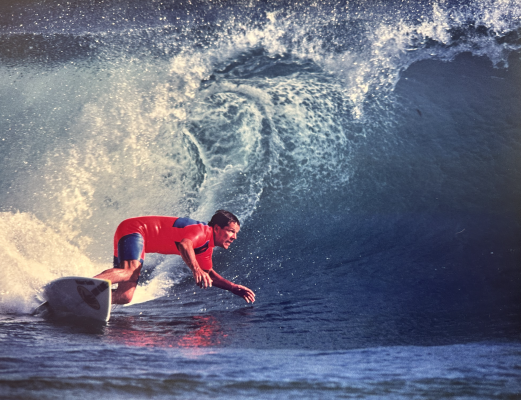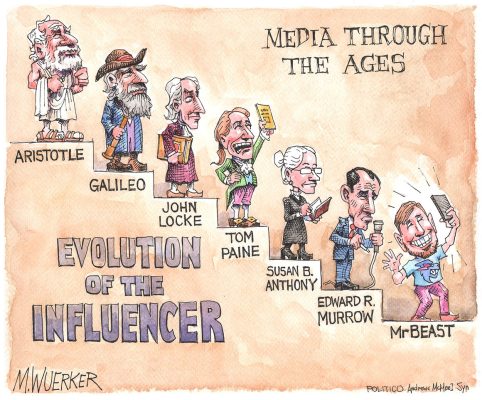
Legend has it that the Spanish conquistador Juan Ponce de León ‘discovered’ Florida while looking for the Fountain of Youth, a fantasy which has nurtured fiction in all its forms.
In reality, physical youth is meant to be transitory. It can’t be sheltered from the autumn of years and the winter of decades. Indifferent to mortality, JB Kennedy has been able to retain his spiritual youth by plunging into a substance called poetry.
When he’s not creating his own doses of this elixir, he turns to other authors like Octavio Paz, Pablo Neruda, or Federico García Lorca. When Paz died in 1998, Kennedy dedicated a poem to the Mexican Nobel Prize-winner in which he repeated the line: “You are streaming” at the end of every stanza. It was based on an elegy by Neruda entitled ‘Alberto Rojas Jiménez comes flying.’
A similar procedure was used by García Lorca in his requiem to the bullfighter Ignacio Sánchez Mejías. Trembling with admiration, Kennedy remembers how the Andalusian poet stated time and time again that the toreador had died “at five in the afternoon.”
Then a metaphor of that poem comes to his mind: “Like a river of lions / was his marvelous strength.”
“Whoa!” he yells, hitting his forehead with one of his hands, as if he had just witnessed a deadly stunt. “A river of lions! Un río de leones!” He also loves the sound of it in Spanish. Kennedy must have reread this line of the ‘Lament for Ignacio Sánchez Mejías’ on innumerable occasions, but he’s still in awe of the roaring torrent of manes, fangs and claws.
He even dedicated a short poem to that image by Lorca. It’s what could be called an ode to a metaphor. This evergreen fascination for the beauty and power of language is what keeps Kennedy creative and rebellious at the age of eighty-one.
He has yet to publish a book. He’s content with seeing his work printed in newspapers, like a birdman who loves watching his pigeons get lost beyond the skyline. He doesn’t care that they leave no traces in the sky. It’s the joy of freeing imagination from its everyday jail and hearing the wings of language move vigorously in the air that gives him plenitude.
Kennedy often writes for the occasion. He dedicated a poem to a boy who was run over by a car in Redondo Beach. Maybe not many people today rely on poetry to sooth the pain of tragedies. Still, he knows that it streams “over mortuaries, crematories, cemeteries — / among ashes and shrouds and elegies—,” as he wrote in his requiem to Octavio Paz.
Those who defy death and oblivion with words don’t belong to this epoch. Kennedy doesn’t care to be considered anachronistic, idealistic, romantic… He’s too focused on practicing his faith in nature and art, too busy throwing red-hot syllables against conformity and avarice, to be concerned with labels.
“What keeps me going,” he says, “is passion for language. I love language! I live by language.”
Birth of a poet
He first stared at the skies and abysses of poetry from two summits called Percy Bysshe Shelley and Lord Byron. However, he decided to take wing after meeting one of the most influential American poets of the twentieth century.
Born in Denver, Colorado, JB Kennedy arrived in Los Angeles in 1940, when he was eight years old. Kennedy claims he has written since that age, with the same manual typewriter he uses today, though he didn’t start with poetry right away.
He was a 15-year-old student at University High School when an English teacher who knew of his love for verses told him: “Listen, here in California we have a great poet named Robinson Jeffers. You have to investigate him. He not only looks like the great Greek tragedians, but he writes like them too.”
“That afternoon after school,” Kennedy remembers,” I went to a local bookstore, found a book of poems by Robinson Jeffers, opened it up, started reading and whoa, goddamn!
“Before my nineteenth birthday, I hitchhiked up to Carmel and went to visit Jeffers in his house. I had a few poems of mine in my pocket, which I was stupid enough to show to him. He read them carefully, looked at me and said: ‘You are a poet. This is work is beautiful. It’s impressive.’ After that I didn’t need any second opinion.”
Kennedy graduated from high school and went straight to work without ever stepping into college. At the end of 1952, the poet was drafted by the Army during the Korean War, but joined the Navy instead. “It was a horrible experience for me. I was on a ship engaged in short bombardment and I saw a lot of people get blown up. Not because they were a threat to us, but simply because they were there.”
That season in hell reinforced JB Kennedy’s political skepticism. He defines himself as “a little more frantic than the crazy liberals, a little bit higher than that, getting close to anarchy.”
He has expressed his ideology in the epigrams, “confidence in the ones who rule is evidence of a dunce or a fool,” and “the solemn word of governments is seldom worth a copper cent.”
 The harmonious linesmith
The harmonious linesmith
After the war, Kennedy continued writing poetry, essays, criticism and political commentary for various literary and journalistic publications across America. He also began his odyssey as a bookstore owner.
He had already worked among bookshelves as a teenager. He even met his wife, Tina, to whom he has been married for 51 years (they have two daughters), while working as a manager in a bookstore. He would later be the proprietor of at least five of these businesses in the L.A. area, most in the South Bay.
From the time he opened his first bookstore in West Los Angeles, in the late 1960s or early 1970s, until he closed his last one in Torrance a couple of years ago, Kennedy dealt with greedy landlords and obscure insurance policies, and he even had to extinguish a fire at his shop in Redondo Beach.
His first store was located on Overland Avenue. The City of Los Angeles came one day and announced that they were closing a section of the street in order to widen it. The work was supposed to take no longer than eight months, yet it took more than two years, during which time nobody could get to the bookstore.
Kennedy then moved to Pier Avenue in Hermosa Beach. “I was there for three or four years,” he says. “I was in a building with apartments upstairs. One night, the sewer backed up and filled my store with sewage. I lost my entire bottom shelf and a lot of other stuff I had on the floor. My insurance said that I was covered for flood that comes down but not for flood that comes up.”
He would open his next store in San Pedro, on Pacific Avenue. It was three times bigger than the first one and became the setting of his fondest memories in the business. Irish essayist Noel O’Hara, who was a frequent visitor of that bookstore, published a piece in Dublin in which he stated that JB Kennedy’s was the best in the world.
Kennedy had, of course, kept writing poetry. He had switched from free verse to more classical forms, in search of melodic perfection. He wrote a review of James Joyce’s Ulysses, not only special because it’s in verse, but due to the fact that every one of its lines rhyme word by word, instead of just the last syllables.
O’Hara celebrated these experiments with a moniker the poet cherishes profoundly. “When I was writing poems with the entire lines rhyming, he told me: ‘You’re the harmonious linesmith.’ That’s, of course, an allusion to Handel’s tremendous keyboard composition called ‘The Harmonious Blacksmith.’ When he called me that I just about jumped out of my skin. What a compliment!” JB Kennedy shouts, clapping his hands.
The episode is related with another of JB Kennedy’s passions: music. He always celebrated Mozart’s birthday by offering cupcakes and playing the music of the Austrian composer in his bookstores. “Music is air for me,” he says. “I have to breathe it.”
It was his passion for the greatest musical works of all time, plus his interest in passionate readers, that kept him going with his bookstores. He has no trouble at all recognizing that it wasn’t good, businesswise, for at times it seemed he was giving away as much as he sold.
He closed the great San Pedro bookstore when its ceiling fell down. He had warned the landlady that the roof needed to be fixed. After a few mediocre repairs and lots of negligence it crashed on the shelves and Kennedy had to move once more, this time to Redondo Beach, on Pacific Coast Highway
One night at this location he saved the entire building from burning down. He fought the flames with a fire extinguisher and won, before the firemen arrived. This action, though heroic, made the landlord bitter, since it would have been better for him to collect the insurance money.
Although high rents and other problems pushed him towards retirement from the bookstore business, Kennedy has no regrets. He was very moved recently when a former customer approached him in a parking lot and said the bookseller had changed his life.
“Fifteen years ago,” he told Kennedy, “I came into your store and asked you to recommend something for me to read. You handed me a book, I went home with it, read it, and everything changed.”
Kennedy didn’t remember the book, but the man did: “It was ‘Steppenwolf,’ by Hermann Hesse. It was so good that I started reading all of his works: ‘Demian,’ ‘Siddhartha’… It changed my life. And I have to thank you.”
Nowadays, JB Kennedy keeps giving away books and writing poetry. All of his works are in press clippings and typewritten sheets that he carries in his pockets or between the pages of his favorite books of poetry. Compiling this work is not fundamental to the poet; the practice of the poetry itself is what has mattered.
“I’ll eventually put together a book,” Kennedy says. “But making poems is what’s important to me, much more important than making a reputation.”
Questioned on the value of poetry in a world where consumption and information are often held above contemplation and creation, he declares: “I can’t speak for anybody else. I can only speak for myself. For me poetry is crucial.”
JB Kennedy has just sounded like a river of lions.
Read JB Kennedy’s “Letter to a Young Poet.” And “Letter to JB Kennedy from Wood River Valley” by poet Jennifer Passaro.
JB Kennedy will read Sunday night at Beach magazine’s Live at the Lounge event. 1018 Hermosa Avenue, Hermosa Beach. No cover charge. Doors open at 5:30 p.m., readings begin at 6:30 p.m.










